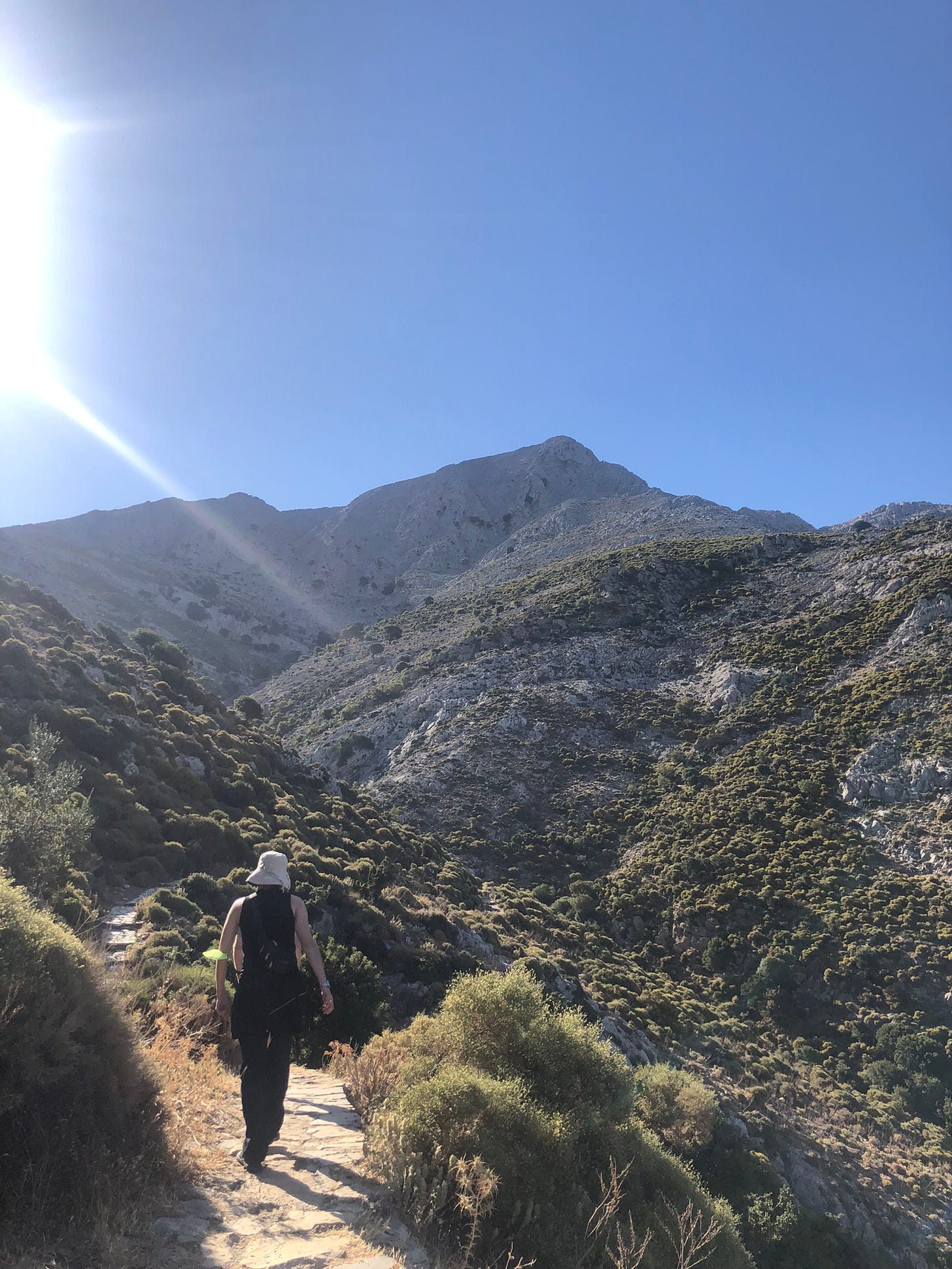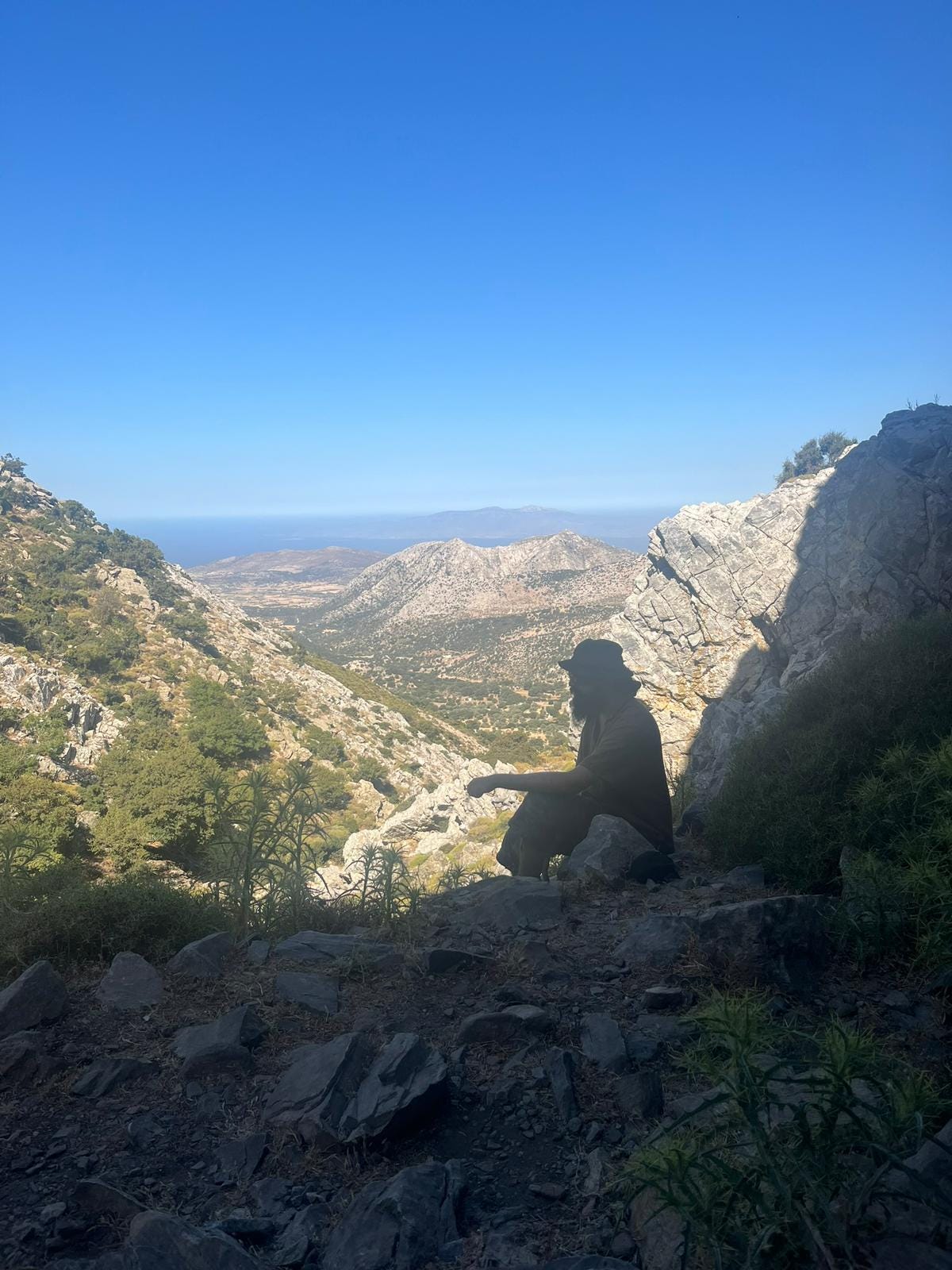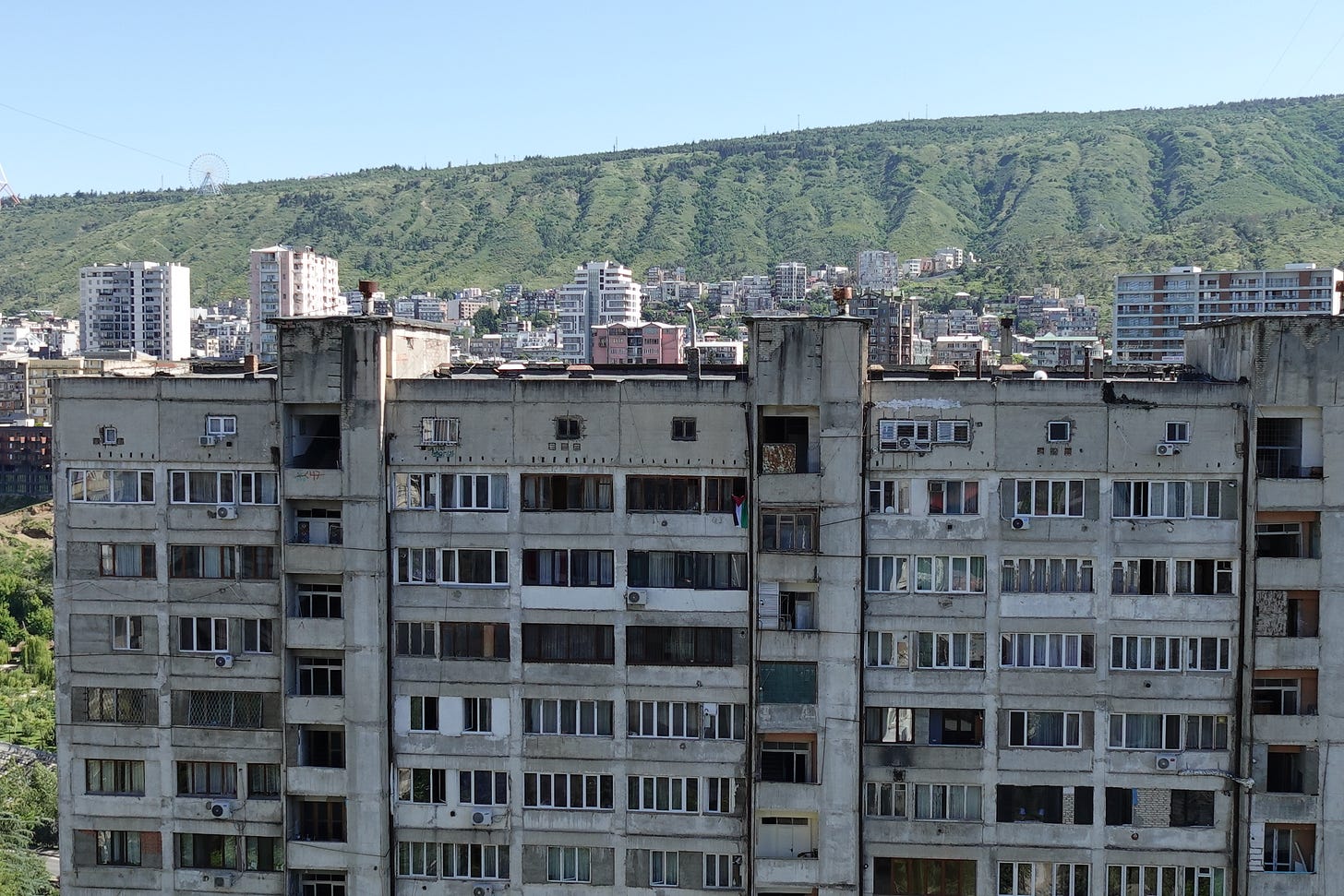The last time I travelled to Athens was in 2013. The eurocrisis was in full swing, there was simmering tension in the streets and Syriza were just emerging out of a popular kinetic energy. The city felt vast, sparse and underwhelming. We had just been in Istanbul and the contrast was stark. That palimpsestic behemoth on the Bosphorus was where I learnt to love urban life, to love wandering, and to love slow evenings suffused with tea, sweets and chat. Athens felt small and timid in comparison. In hindsight, it was an easy place to get along, and had many lowkey beauties, but the unreconstructed third-worldist in me loved to bathe in Istanbul's superior magnificence.
We hadn't managed to make it to an island back then, so this time around that is exactly what was on offer. It was a family holiday: beach, villa, pool, reading. That kind of thing. Compromise was of course king, and negotiating one's loss of autonomy in the face of revisiting family dynamics – the primal scene – is always a tough proposition. But the promise of the Mediterranean loomed large; its food, azure coolness and romantic, if increasingly barren, shoreline. You get tanned and sandy, encounter nudists and white-washed churches, dip into easy novels and games of chess–sun-dazed and tipsy–and wonder if this is all worth it. What is this whole thing? You feel both more and less embodied. Rested but also troubled. What is this life?
We were staying on Naxos, famed for Mount Zeus, and so it was only right that we make for the early morning hike. It would surely put one in the mood for a spiritual revelation, if not at least provide good fodder for a poem or two. And the heart needed pumping up too no less. We hiked for a period, stopping halfway at Zeus' childhood cave – you know, where he would watch TV and play video games, the real urtext – while one intrepid companion set off the full distance. One could not help but think about Plato, and the myth of the Greeks, the modern construction of Eurocentrism and the multi-layered nature of the Mediterranean and Asia Minor. There were strong etesian winds driven from the hot plateau of Anatolia; the weather always pertaining to the outside threat.
I thought about Byzantium and the Pontics, of Pontic and Romani musicians like Stelios Kazantzidis who refashioned Hindi filmi music to create rebetiko classics. Cosmopolitan stories of the lower classes. Displaced and marginal, capturing the popular. I thought about Georgia and how we can reconceive of the whole European-white supremacist artifice from such peripheral borderlands. I thought about Aleksandre, the Pontic Greek who called out to me in Georgian if I needed a cab at the airport. Routes, not roots. He was melancholic and slight; he migrated to Greece in the 1980s after growing up in the Armenian quarter of Tbilisi. I thought about the Iranian uncle at the beachside restaurant who passed on his commiserations as we watched Turkey defeat a spirited Georgian team in the football.
On the ferry back, I thought about Juan Goytisolo's Muslim Mediterranean in Cinema Eden, a book I read back on that same trip in 2013, thinking about death and life and travel and the spirit and writing and duration and grammar and tongues and desire for difference and romance and aesthetic educations and aging. We returned back to a gentrifying Athens, ready to face the maelstrom back home in Saburtalo.









